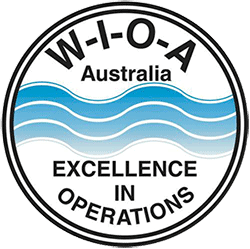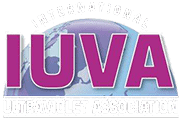UV globes/UV fluorescent tubes are like security guards in your UV water disinfection system, shining a light on harmful intruders in your water and taking them down!
At UV Guard, we provide UV globes/UV fluorescent tubes of the same high quality as our UV disinfection systems for safe water you can count on.
How Do UV Globes/UV Fluorescent Tubes Work?
UV globes/UV fluorescent tubes are the heroes of UV water disinfection systems. These types of light bulbs contain mercury, and when electricity flows through them, it activates the mercury vapour. This activation causes the mercury to release a kind of ultraviolet (UV) light called UV-C.
As water flows past the UV-C light, the light penetrates the cells of harmful microorganisms in the water. This exposure damages the DNA of the microorganisms, making it impossible for them to reproduce and cause infections. This process disinfects the water without adding chemicals or changing the water’s taste or odour.
What Are the Benefits of Using UV Globes/UV Fluorescent Tubes in Water Treatment?
UV globes/UV fluorescent tubes in water treatment are
- Effective at inactivating various harmful microorganisms so water is safe to drink, including bacteria, viruses, and protozoa.
- Efficient, disinfecting water after just a brief exposure to their light.
- Easy to maintain, requiring only a periodic replacement and occasional checking that their light isn’t obstructed.
- Chemical-free, meaning no chemical by-products in your water and no alteration to the water’s taste or smell.
- Environmentally friendly and sustainable, since no chemicals are involved.
- Safe to use and maintain, again, because no hazardous chemicals are involved.
Light the Way: UV Guard’s Approach
Here at UV Guard, we use UV globes/UV fluorescent tubes in our state-of-the-art systems for highly effective, chemical-free, and sustainable water disinfection.
We have a range of systems to cater to different sectors’ specific water safety and quality needs.
- Commercial: For clean, safe water that protects public health in hotels, restaurants, shopping centres, and office buildings.
- Residential: For safe drinking water free from waterborne pathogens with no altered taste or odour.
- Swimming pools: To sanitise water, improve clarity, and reduce chlorine by-products in residential and recreational water facilities.
- Agriculture: To protect water quality from harmful organisms that could affect crop health, livestock, and food safety.
- Aquaculture: To eliminate harmful microorganisms and pathogens that can cause disease in fish and other aquatic species being bred, reared, and harvested (generally for food production).
- Medical & Pharmaceutical: To meet the strict water hygiene standards of hospitals and medical facilities that are in place to prevent the spread of infections. Also, to ensure the water used in pharmaceutical manufacturing processes is free from contaminants.
FAQs About UV Water Treatment
Brighten Your Route to Hygienic, Safe Water With UV Guard’s UV Globe Technology.
For the highest quality UV globe water purification for any application, you need a UV Guard water disinfection system.
When it’s time to replace your system’s globe/tube, we’ve got you covered. Explore our range of UV globes/UV fluorescent tubes for residential and commercial UV water treatment systems today.
If you need help choosing the right replacement for your system, fill out this online form, and we’ll be in touch soon.
AWA Water Journal – June 2015 – New power supply boxes make mobile and off-grid water disinfection possible
Your Content Goes Here Your Content Goes Here UV-Guard’s NEW PLC controller has been mentioned in the June edition of the Australian Water Association (AWA) Water journal. The following text has been taken from the publication: “Off-grid and mobile water disinfection is now possible thanks [...]
Is using UV a better way to reduce chlorine levels in water?
Share Your Content Goes Here Your Content Goes Here Chlorine reduction can be an expensive and time-consuming ordeal for many industrial operations, but one company is honing in on helping businesses attain ultrapure water for processes and production. UV Guard [...]
Aquafides UV water disinfection systems
Share Your Content Goes Here Your Content Goes Here Aquafides UV water disinfection systems are validated to meet the stringent global performance benchmarks as part of DVGW, ÖVGW and SVGW certification. The DVGW (German Technical and Scientific Association for Gas [...]
UV water disinfection is the key to successful beer brewing
Share Your Content Goes Here Your Content Goes Here UV Guard supports Sydney-based brewers Malt Shovel with the management of its microbial-free beer production processes. Two ultraviolet (UV) disinfection systems are installed at the brewery. One is designed to disinfect [...]
Newsletter
Stay up-to-date with our very latest news, technology, offers and events.











